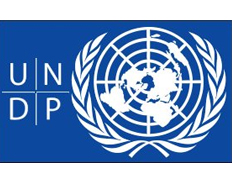
Integrated solutions for circularity in buildings and the construction sector
Details
Description
Call Updates
Feb 8, 2023 8:04:41 PM
CALL UPDATE: FLASH EVALUATION RESULTS
EVALUATION results
Published: 16 June 2021
Deadline: 01 September 2022
Available budget:
|
Topics |
Type of Action |
Budgets |
|
HORIZON-CL6-2022-BIODIV-02-01-two-stage |
IA |
€ 20,000,000.00 |
|
HORIZON-CL6-2022-BIODIV-02-02-two-stage |
IA |
€ 14,000,000.00 |
|
HORIZON-CL6-2022-BIODIV-02-03-two-stage |
RIA |
€ 12,000,000.00 |
|
HORIZON-CL6-2022-CIRCBIO-02-01-two-stage |
IA |
€ 21,000,000.00 |
|
HORIZON-CL6-2022-CIRCBIO-02-02-two-stage |
RIA |
€ 10,000,000.00 |
|
HORIZON-CL6-2022-CIRCBIO-02-03-two-stage |
IA |
€ 12,000,000.00 |
|
HORIZON-CL6-2022-CIRCBIO-02-04-two-stage |
RIA |
€ 6,000,000.00 |
|
HORIZON-CL6-2022-CIRCBIO-02-05-two-stage |
RIA |
€ 12,000,000.00 |
|
HORIZON-CL6-2022-CIRCBIO-02-06-two-stage |
IA |
€ 15,000,000.00 |
The results of the evaluation are as follows:
|
Topic Code |
Number of proposals submitted |
Number of inadmissible proposals |
Number of ineligible proposals |
Number of above-threshold proposals |
Total budget requested for above-threshold proposals |
|
HORIZON-CL6-2022-BIODIV-02-01-two-stage |
2 |
0 |
0 |
1 |
€7,967,829.18 |
|
HORIZON-CL6-2022-BIODIV-02-02-two-stage |
3 |
0 |
0 |
3 |
€21,094,998.26 |
|
HORIZON-CL6-2022-BIODIV-02-03-two-stage |
4 |
0 |
0 |
3 |
€17,998,863.75 |
|
HORIZON-CL6-2022-CIRCBIO-02-01-two-stage |
12 |
0 |
0 |
12 |
€87,921,393.88 |
|
HORIZON-CL6-2022-CIRCBIO-02-02-two-stage |
5 |
0 |
0 |
5 |
€24,994,213.50 |
|
HORIZON-CL6-2022-CIRCBIO-02-03-two-stage |
9 |
0 |
0 |
9 |
€49,897,079.94 |
|
HORIZON-CL6-2022-CIRCBIO-02-04-two-stage |
4 |
0 |
0 |
4 |
€23,927,473.75 |
|
HORIZON-CL6-2022-CIRCBIO-02-05-two-stage |
3 |
0 |
0 |
3 |
€17,995,577.50 |
|
HORIZON-CL6-2022-CIRCBIO-02-06-two-stage |
6 |
0 |
0 |
6 |
€44,279,286.51 |
We recently informed the applicants about the evaluation results for their proposals.
For questions, please contact the Research Enquiry Service.
May 25, 2022 3:34:02 PM
CALL UPDATE: GENERALISED FEEDBACK AFTER STAGE 1
COMMON GENERAL FEEDBACK for successful applicants after STAGE 1
In order to best ensure equal treatment, successful stage 1 applicants do not receive the Evaluation Summary Reports (ESRs) for their proposals, but this generalised feedback with information and tips for preparing the full proposal.
Information & tips
Main shortcomings found in proposals of stage-1 evaluation of HORIZON-CL6-2022-CIRCBIO-02-01-two-stage:
- The objectives are not always adequately quantified or justified, e.g. with measurable indicators and target values. The provided indicators are not always convincingly supported and elaborated, e.g. how they will specifically measure achievements
- In some proposals, the current state-of-the-art is not convincingly detailed for all solutions to be developed. The presented overview is not always specific enough and lacks credible evidences of current solutions for circular buildings and construction or starting TRL levels.
- The proposals do not always provide sufficiently detailed information about the proposed demonstration cases, e.g. location, scale and integrated solutions to be demonstrated.
- Some proposals lack an adequate description of how they will assess the sustainability and circularity aspects of proposed solutions, e.g. LCA approaches using the European Commission’s Product Environmental Footprint and relevant costing methods are not presented in sufficient detail
- The scale and significance of the project’s contributions to the expected outcomes and impacts listed in the topic are not always adequately addressed or substantiated by measurable indicators and target values, e.g. the size of the targeted markets. Proposals do not always adequately describe baseline or assumptions used for the given estimates.
- The proposals do not always consider relevant barriers to the expected outcomes and impacts identified, e.g. regulatory or market related. The applicable mitigation actions are not always identified or considered comprehensively enough.
In your stage 2 proposal, you have a chance to address or clarify these issues.
Please bear in mind that your full proposal will now be evaluated more in-depth and possibly by a new group of outside experts.
Please make sure that your full proposal is consistent with your short outline proposal. It may NOT differ substantially.
May 20, 2022 10:45:41 AM
CALL UPDATE: FLASH EVALUATION RESULTS
EVALUATION results
Published: 06 October 2021
Deadline: 15 February 2022
Available budget:
- HORIZON-CL6-2022-CIRCBIO-02-01-two-stage : €21.000.000,00
In accordance with General Annex F of the Work Programme, the evaluation of the first-stage proposals was made looking only at the criteria ‘Excellence’ and ‘Impact’. The threshold for both criteria was 4. The overall threshold (applying to the sum of the two individual scores) was set for each topic/type of action with separate call-budget-split at a level that allowed the total requested budget of proposals admitted to stage 2 be as close as possible to 3 times the available budget (and not below 2.5 times the budget):
- HORIZON-CL6-2022-CIRCBIO-02-01-two-stage (Integrated solutions for circularity in buildings and the construction sector): 8 points
The results of the evaluation are as follows:
|
Topic Id |
Number of ineligible proposals: |
Number of above-threshold proposals: |
Number of proposals submitted (including proposals transferred from or to other calls): |
Total budget requested for above-threshold proposals: |
|
HORIZON-CL6-2022-CIRCBIO-02-01-two-stage |
2 |
12 |
34 |
90.845.860,00 € |
We recently informed the applicants about the evaluation results for their proposals.
For questions, please contact the Research Enquiry Service.
https://ec.europa.eu/info/research-and-innovation_en
Feb 25, 2022 9:43:04 AM
PROPOSAL NUMBERS
Call HORIZON-CL6-2022-CIRCBIO-02-two-stage_stage1 has closed on the 15th of February 2022.
98 proposals have been submitted.
The breakdown per topic is:
- HORIZON-CL6-2022-CIRCBIO-02-01-two-stage: 34
Evaluation results are expected to be communicated in May 2022.
Oct 28, 2021 12:00:03 AM
The submission session is now available for: HORIZON-CL6-2022-CIRCBIO-02-01-two-stage(HORIZON-IA)
Integrated solutions for circularity in buildings and the construction sector
TOPIC ID: HORIZON-CL6-2022-CIRCBIO-02-01-two-stage
Programme: Horizon Europe Framework Programme (HORIZON)
Call: Circular economy and bioeconomy sectors (HORIZON-CL6-2022-CIRCBIO-02-two-stage)
Type of action: HORIZON-IA HORIZON Innovation Actions
Type of MGA: HORIZON Action Grant Budget-Based [HORIZON-AG]
Deadline model: two-stage
Planned opening date: 28 October 2021
Deadline dates:
15 February 2022 17:00:00 Brussels time
01 September 2022 17:00:00 Brussels time
Topic description
ExpectedOutcome:
A successful proposal will contribute to all Destination ‘Circular economy and bioeconomy sectors’ impacts related to consumers and industry, in particular to European industrial sustainability, competitiveness and resource independence by lowering the environmental footprint, enabling climate-neutrality and higher resource efficiency, through increased circularity and a resulting reduction in GHG emissions.
Project results are expected to contribute to at least four of the following outcomes:
- Increased deployment and market uptake of innovative climate-neutral circular solutions for construction, waste prevention, lifetime extension and significant improvement of lifecycle performance of buildings and their components, including GHG emissions.
- Increased deployment and market uptake of innovative solutions to design and manufacture for disassembly, waste prevention and management, reuse and recycling in the construction sector, including production and assembling.
- Enhanced diffusion and demonstrated benefits of advanced digital solutions, ensuring coherence with other initiatives such as digital logbooks for logistics of construction materials and the energy-efficient operation of buildings.
- Increased recovery and recycling rates of construction and demolition waste.
- Improved elimination of hazardous substances from secondary materials.
- Increased upcycling of reused and recycled material in construction materials, products and buildings.
- Increased knowledge about the overall environmental footprint of buildings and construction materials, including the integrated assessment of material and energy efficiency with regard to possible trade-offs and synergies, and increased practical application of the Commission’s Product Environmental Footprint method.
Scope:
The 2020 circular economy action plan (CEAP) states that “the built environment has a significant impact on many sectors of the economy, on local jobs and quality of life. It requires vast amounts of resources and accounts for about 50% of all extracted material. The construction sector is responsible for over 35% of the EU’s total waste generation. Greenhouse gas (GHG) emissions from material extraction, manufacturing of construction products, construction and renovation of buildings are estimated at 5-12% of total national GHG emissions. Greater material efficiency could save 80% of those emissions.” Measures should strive for the use of more climate-neutral circular materials with low environmental footprint and tackle material recovery, upcycling, recycled content in products, durability and adaptability of buildings, and they should have a strong life cycle and digitalisation focus. They should also focus on circular design that facilitates reuse and recycling beforehand.
This activity should demonstrate at large scale and deploy innovative climate-neutral circular solutions that prevent waste, expand the lifetime and improve the life cycle performance of buildings and their components, but also improve the quality of and the confidence in reused and recycled material. This targets materials, products, equipment and systems, their sourcing, design, upgradability, durability, material efficiency, dismantling, recyclability, etc. Dismantling and deconstruction should be embedded already in the design phase, with the adoption of circular economy principles, and thus reduce construction and demolition waste (CDW). As part of an overall digitalisation of the construction ecosystem, projects should use digital tools such as Building Information Modelling (BIM) or Digital Twin, which are key to traceability and circularity, and can be further used during deconstruction. Appropriate material recycling within construction operations, waste material identification, sorting and decontamination solutions should be considered to improve material logistics, processing and upgrading. Projects should aim to support the strengthening of preferably local or regional secondary material markets. All solutions should be based on life-cycle approaches and proposals should integrate life cycle assessment using the European Commission’s Product Environmental Footprint (PEF) method and relevant costing methods. The projects should also propose, test and demonstrate new business models. Projects should also develop training material to endow workers in this occupational group with the right skillset in order to deploy the new technologies developed. All achieved outcomes should be demonstrated using quantitative indicators and targets wherever possible.
With regard to the territorial aspects of all proposed solutions, proposals seek to contribute to the goals and cooperate with the services of the European Commission’s Circular Cities and Regions Initiative (CCRI). Joint activities with CCRI projects are encouraged.
Proposals should seek to build synergies with projects funded under Cluster 4 Destination ‘Climate neutral, circular and digitised production’, section “A new way to build, accelerating disruptive change in construction”. Projects are therefore strongly encouraged to organise joint activities, ensure synergies and undertake clustering activities with projects under Cluster 4.
Projects should seek to contribute to the New European Bauhaus initiative by supporting the green and digital transitions in communities’ living environments through merging sustainability, inclusiveness and quality of experience.
In this topic the integration of the gender dimension (sex and gender analysis) in research and innovation content is not a mandatory requirement.



